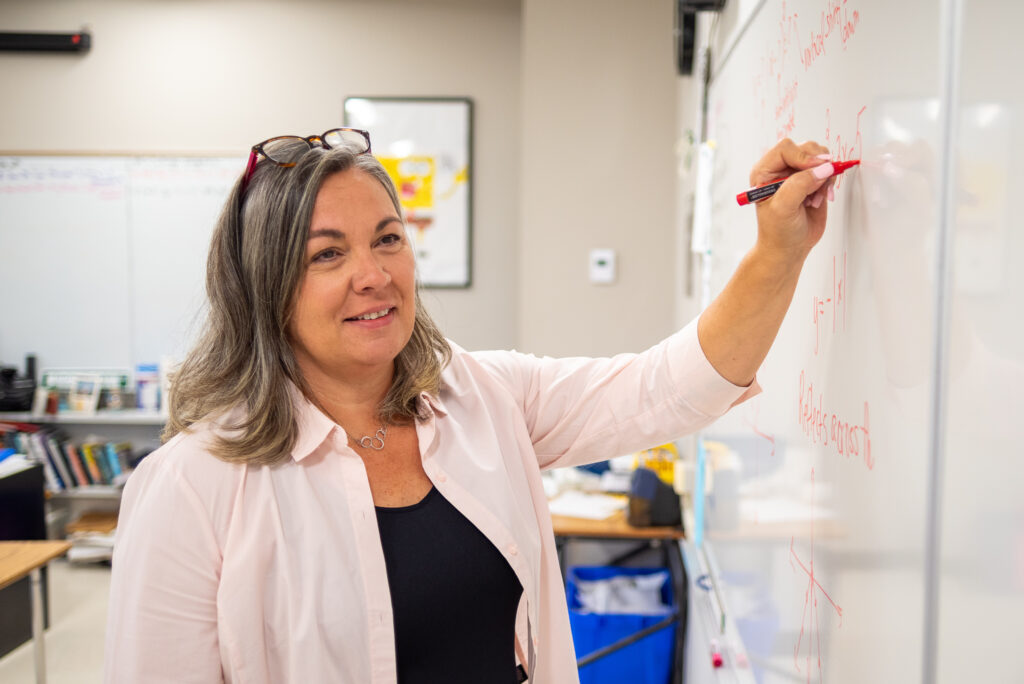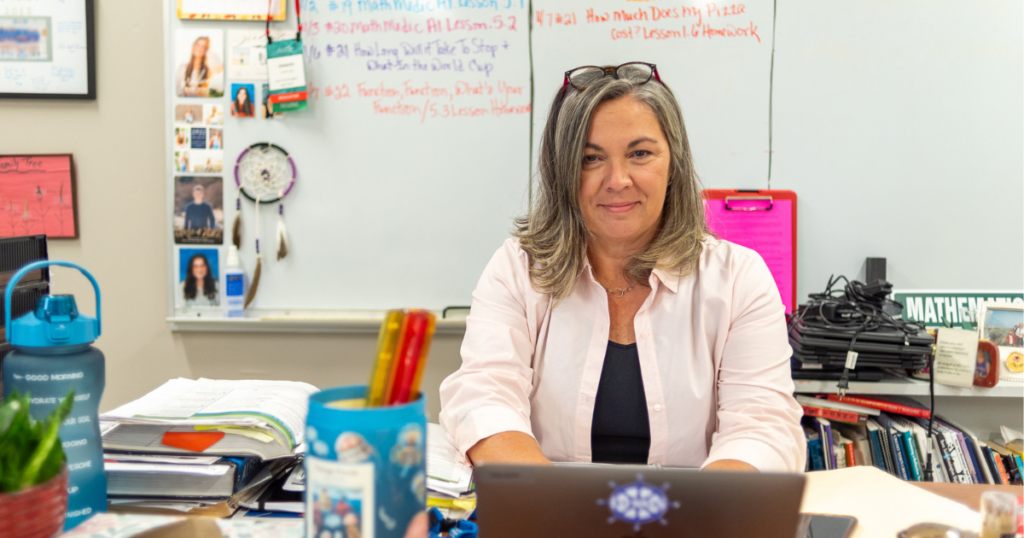Jenn shared her story as part of MECEP’s State of Working Maine 2023 report. Click here to read the full report.
Jenn has 28 years of teaching experience and currently teaches math at a Downeast high school.
Our island school is pretty small, with only about 90 students total. It’s a tight-knit community. We have a lot of families that have been here for generations. My family has been here for many generations, too, and I was the first to go to college. I moved back during the pandemic. The timing was great because my grandmother was at the nursing home that shut down, and she needed a lot of care. We took shifts caring for her at my mom’s house before she died.
Along with the pandemic, we’ve also had a really hard opioid crisis here in the Downeast area; probably worse here than in other parts of Maine. We’re very open to talking about things. We have an Opiate-Free Island Partnership which provides support. We’ve had presentations from people who have pulled themselves out of it. We’ve done Narcan training for the staff and students. We try to talk about it, because if it’s not talked about, it’s not dealt with.
Teaching through the pandemic was challenging and it was hard. There are now so many kids with so many gaps. In Algebra I, we don’t start where we’ve normally started, and we don’t get through what we normally get through. And it’s going to be a while before we get to the point where that’s not the case. We’ve had to deal with a lot of immature behaviors. Last year they decided to move the 8th grade back to the middle school because the kids just weren’t mature enough. The kids don’t want to participate in sports or events. We haven’t had a soccer team for at least four years. We don’t have a baseball team. Last year we finally pulled a softball team together. But the students just aren’t coming out to participate. It’s sad.

We only have 12 teachers here at our school, so if you take just one out of the mix it’s a big deal. We don’t have a Phys Ed teacher right now, so we can’t offer Phys Ed. We’ve been working without substitutes until just recently. We finally have one sub who is being shared between the high school and the elementary school. We’ve been hopping around, covering other people’s classes. We’re down an ed tech. We’re down a special education teacher. The special ed department has had to get very creative and work extremely hard and extremely long hours to cover what needs to be done.
We’ve had people leave because of the pay. If you’re a brand-new teacher, fresh out of school, you’re starting at $40,000 a year. When you live on an island that’s expensive to live on, you can barely pay your bills. I am so worried about the new teachers starting at the bottom of the pay scale, because housing on this island is just so hard to find. We put together a workforce housing group in our community, and we have some new income-based apartments that were recently built. That’s been a godsend for us. Three of our district’s new teachers are living there. I’m not sure they would have taken the positions if those apartments weren’t there.
Our pay is published in the newspaper — it even puts our names in there! I make $66,000 a year, after 28 years of teaching. Our pay scale has 20 steps, which means that you have to work 20 years to get to the top of the pay scale. When you get to the top, the view is not great. I always tell my kids that I get paid in my heart, not in my pocket. But I don’t know a lot of people that can live on their heart when they need to feed themselves and pay for heat.




